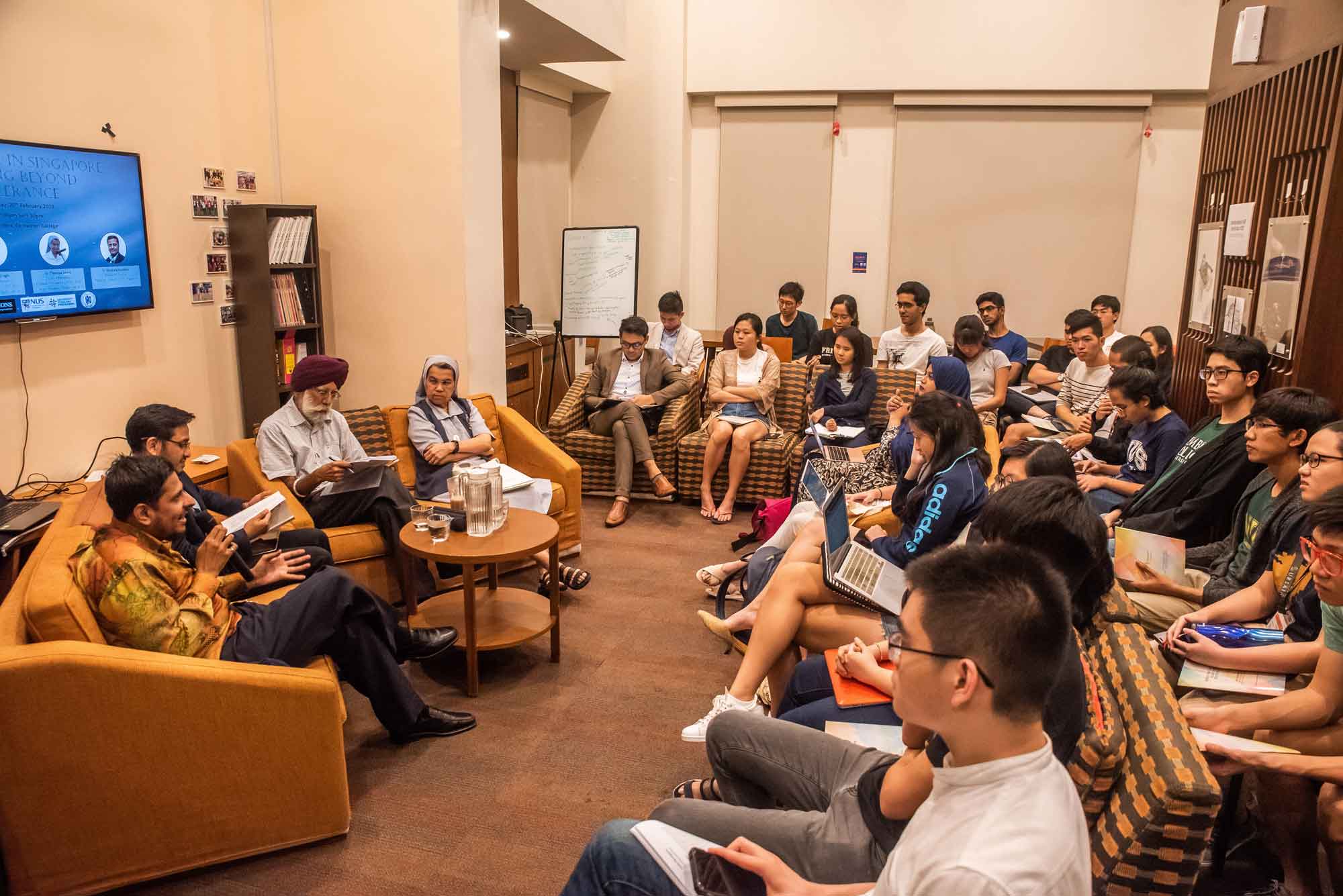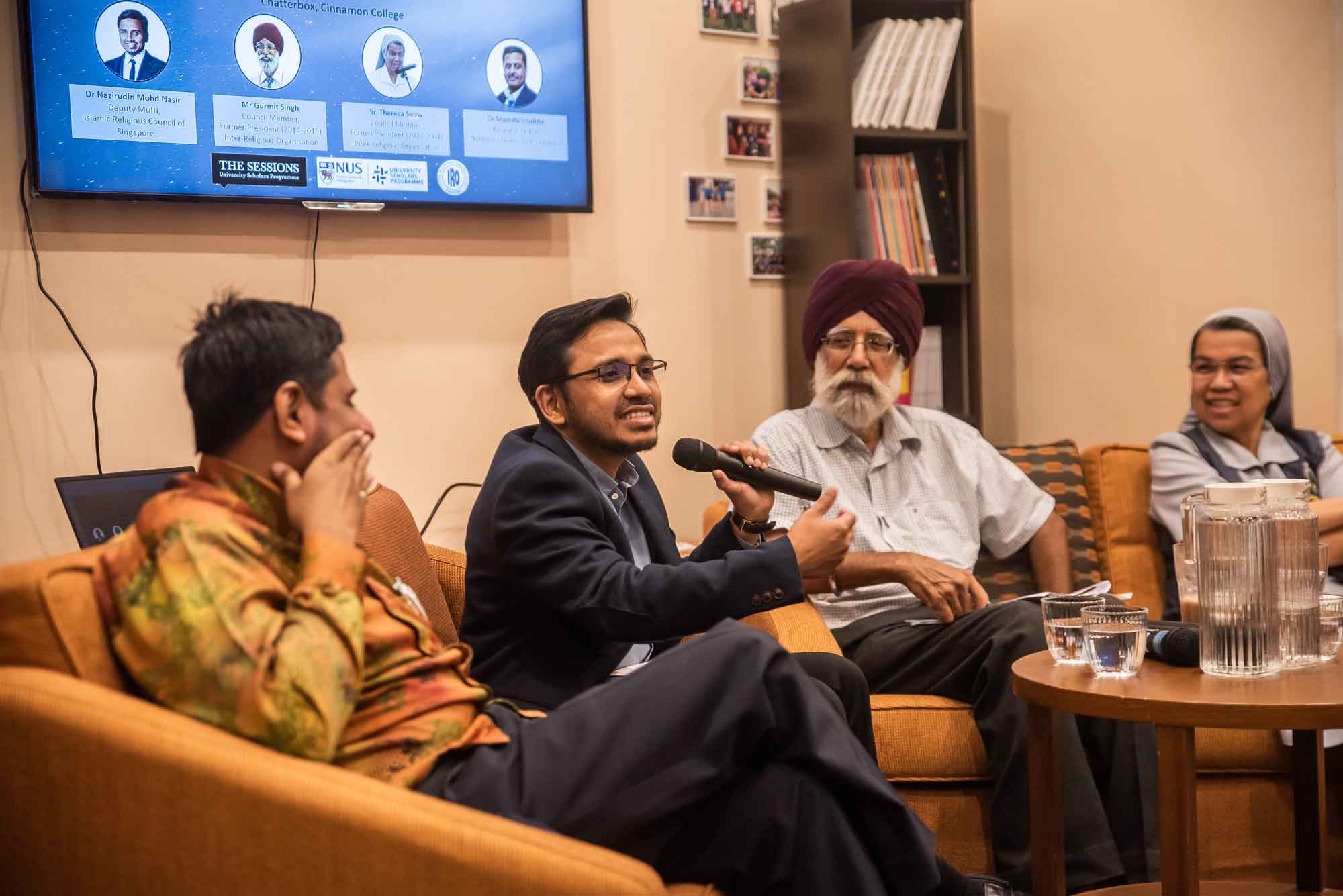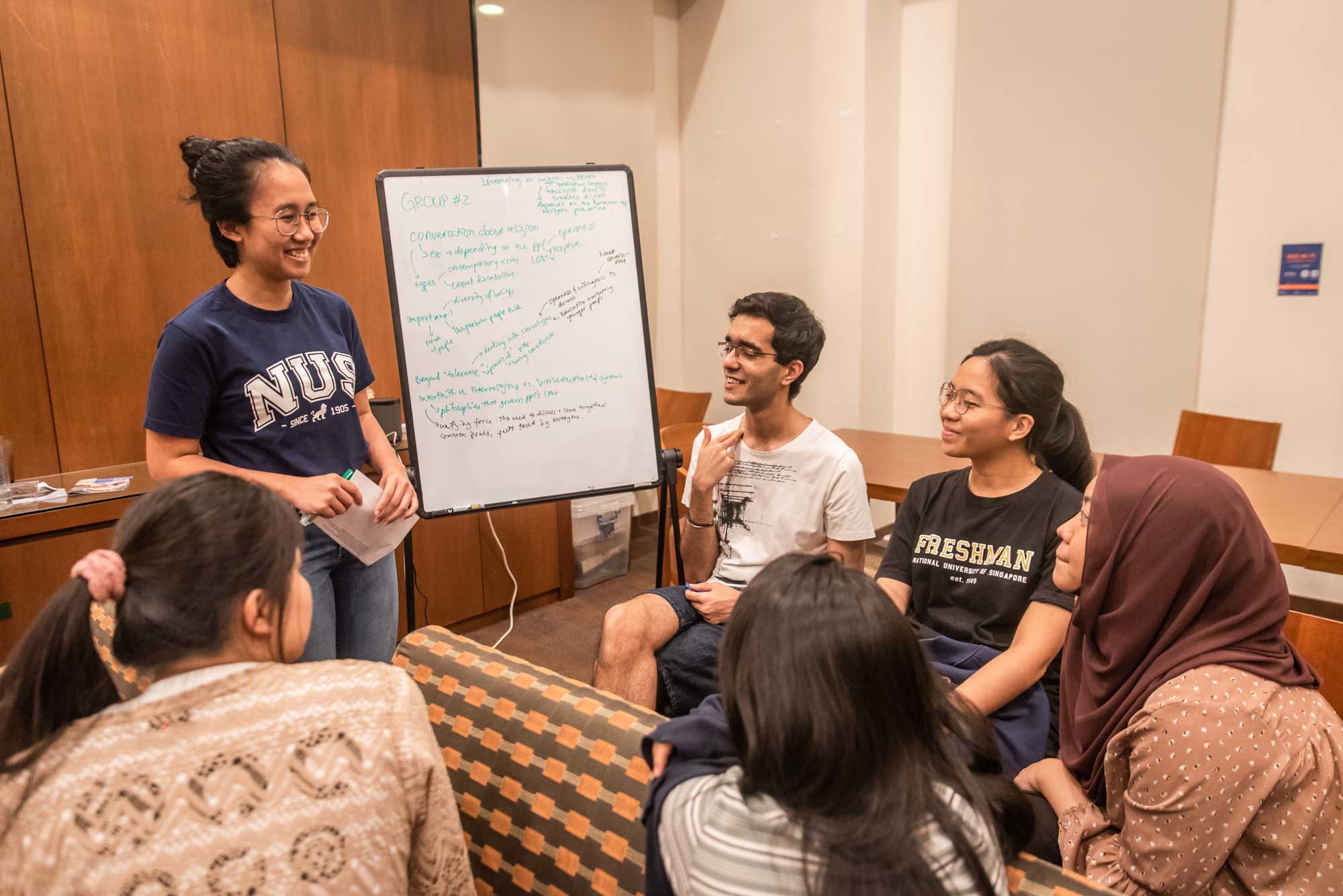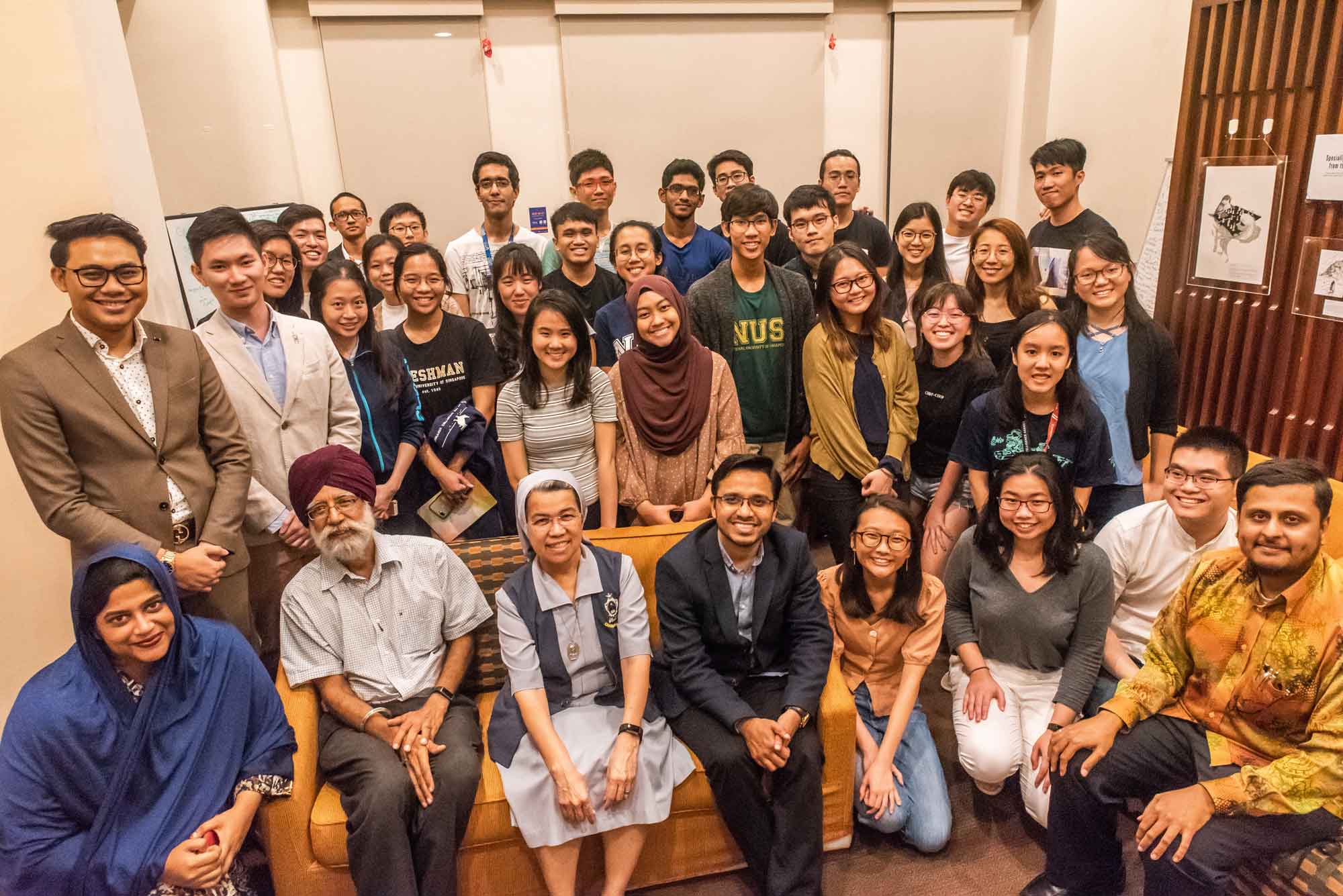Interfaith in Singapore: Moving Beyond Tolerance
Contributed by The Sessions
Published: 13 March 2020

On 20 February 2020, the University Scholars Programme (USP) played host to distinguished guests and over 20 students from USP and beyond turned up at USP Chatterbox for an evening of lively debate on interfaith in Singapore. This event was jointly hosted by The Sessions, a student-led initiative helming this event, and the Inter-Religious Organisation (IRO). On the panel were Dr Nazirudin Mohd Nasir, Deputy Mufti (now appointed as the Mufti of the Republic of Singapore); Mr Gurmit Singh and Sr Theresa Seow, former presidents and current council members of the IRO; and moderator Dr Mustafa Izzuddin, faculty member at USP.
The panel began by elucidating the concept of interfaith—how are the relationships between different faiths like? Where is Singapore on the spectrum of tolerance, understanding and appreciation? What is the place of non-religious people in this conversation? How do we deal with intra-faith, on top of interfaith, relations?
The first important takeaway was the historicity of interfaith relations. The notion of religious harmony— “accepting [others] without question”— long predates the contemporary era. The panelists agreed on the importance of intra-faith, in addition to interfaith, as well as the importance of including non-religious people in interfaith dialogues. Each in turn spoke of powerful acts of interfaith harmony across space and time. The incorporation of Hindu and Muslim teachings into the Sikh Holy Book. A 17th Century Muslim scholar defending Christian communities through participating in their activities and forging cordial relationships, in stark juxtaposition to the inter-religious conflicts of the 14th Century. A Catholic saint being honoured by Muslim communities in Calcutta when news broke of her death, while a local Hindu temple held a prayer event in commemoration of her life.
A second takeaway was how ‘interfaith’ itself can be a problematic concept that needs to be defined. People often assume that they are on the same page when they talk about what interfaith means. However, people may not be because they may have different understandings of what interfaith entails, given their beliefs and biases in relation to each faith. This often leads to inconclusive discussions. Thus, it is important for us to collectively know what interfaith entails before we even delve into discussions about it.
To illustrate, tolerance in Islam is defined by ‘Tasamah’ or ‘Musharakah’. In Islam, tolerance refers to both parties forgiving each other as they are bound to have views that differ from one another. Thus, we should always seek to understand different people’s religious beliefs when understanding them. Speakers also shared that when reading scriptures of other religions, we must understand the context behind why certain things are written, emphasising that we must be critical of our own scriptures to avoid biasedness in interpretation. Furthermore, one panellist highlighted the close interlinks between the Abrahamic religions of Christianity and Islam, asserting that in order to truly understand the Qur’an, one must also understand the Bible.
A final takeaway was how faiths are almost never static and immutable, but in fact are the product of religious orientation and varying practices. Another speaker quipped that “religion is never the problem; but rather, the problem lies with the believers, especially when faiths are taken to extreme,” adding that for inter-religious dialogues to be meaningful, we have to be open to listening about other faiths – underpinned by a confidence in our own beliefs. To be open-minded, the speaker encourages us to be curious and find out more about different faiths; not just about faith in general, but personal stories of why individuals seek faith.


Participants enjoyed the fruitful session, even if it left them with more questions than answers:
Ewe Ziyi (Industrial and Systems Engineering + USP, Class of 2020) shared, “The interfaith dialogue allowed me to discover and understand the different types of concerns people may have on building meaningful relationships with believers of other faiths, be it on a more personal and spiritual level, or a more societal and concrete one. Though I left the session with more questions than answers, I felt that it represented a positive outcome in that the session opened up multiple avenues of self-reflection and set up a certain willingness to reach out and share my opinions with others.”
Facilitators Asa and Timothy share their takeaways from the 30-minute pre-session discussion:
Immanuela Asa (Political Science + USP, Class of 2022) shared, “I really enjoyed facilitating the discussion prior to the session. It reaffirmed my belief that interfaith dialogue remains important even in an increasingly secularised society. After all our common experiences and aspirations for a better world and unite us.”
Timothy Leong (Life Science + USP, Class of 2023) shared, “I really enjoyed hearing the perspectives from the different panelists. Hearing Mr Gurmit Singh sharing on Sikhism as well as his own experiences was also very eye opening for me and helped me to broaden my understanding on what acceptance between different faiths can look like. I also really enjoyed facilitating the discussion on issues of tolerance with the other participants and hearing their different perspectives on the issue of tolerance.”


